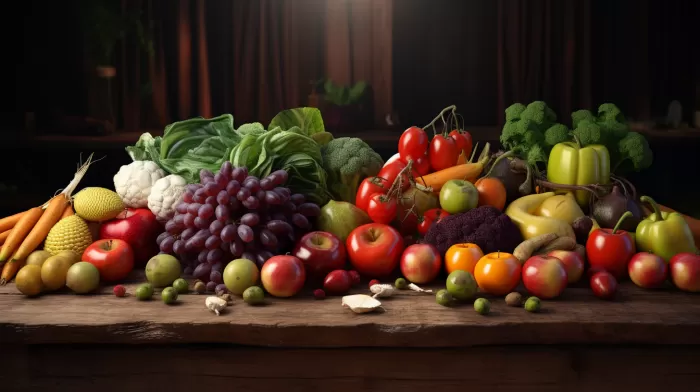The importance of gut bacteria and diet in maintaining healthy cells and preventing cancer development is backed by scientific research. It’s estimated that over 15% of cancers have a direct link to bacterial causes in the gut. Studies have shown that controlling gut bacteria can have a direct influence on cancer development because it triggers the immune system to activate, leading to inflammation in the cells. Fortunately, some compounds in our diet not only promote good gut bacteria but also help in the production of anti-inflammatory molecules and enzymes to counteract negative effects. Here are eight cancer-fighting compounds found in everyday food sources.
Turmeric and curcumin
Turmeric contains a compound called curcumin, which has been proven to stop the cancer cell cycle and suppress tumor growth across many different types of cancer. It also suppresses molecules that promote the activation of cancer cells.
Red grapes, peanuts, and resveratrol
Red grapes and peanuts contain a compound called resveratrol, which stops cancer cells from progressing, causes cancer cell death by interfering with cell action, prevents inflammation-related genes, and mitigates the effects of external stimuli entering the body.
Soybean and genistein
Soybean contains a compound called genistein. Genistein inhibits the initiation of cellular pathways that lead to cancer and stops Notch signaling, which subsequently suppresses one of the primary drivers of the pro-inflammatory chain reaction in cells. Furthermore, the fact that soybeans show resistance to digestion may provide additional benefits, as their resistance may block certain cancer-producing enzymes in the gut.
The Brassica family and powerful compounds
The Brassica family, which includes cabbage, kale, Asian greens, broccoli, cauliflower, and Brussels sprouts, contains a variety of beneficial compounds known as sulforaphane and indole-3-carbinol. These powerful compounds stall cell progression, prevent cell proliferation, promote cancer cell degradation, and induce cell death. Additionally, they down-regulate genes involved in cancer and stabilize cells daily.
Green tea, rooibos tea, and epigallocatechin
Green tea and rooibos tea contain compounds called epigallocatechin that have many benefits, such as preventing binding to receptor cells, reducing tumor volume, preventing DNA damage, decreasing inflammation, strengthening cells, and directly stopping cell growth. They also cause cancer cell death and reduce recurrence rates in people who have had cancer.
Pomegranates and ellagic acid
Pomegranates contain a compound called ellagic acid. When there’s chronic inflammation in the body’s cells, enzymes or proteins may bind to areas they shouldn’t. Ellagic acid prevents this from happening.
Carrots and beta-carotene
Carrots contain beta-carotene, a compound that gets metabolized into provitamin A. Vitamin A is a powerful antioxidant that plays a crucial role in cell differentiation and cell-to-cell communication in the body.
Onions, allium family, and sulfur compounds
Onions, garlic, scallions, shallots, chives, and leeks belong to the allium family and contain compounds like diallyl sulfide, S-allyl cysteine, and allicin. These compounds increase the activity of enzymes involved in carcinogen detoxification.
These anti-cancer compounds are just a small part of the numerous health benefits that can be derived from a wide range of fruits and vegetables. Flavonoid compounds found in many plant-based foods can act as powerful cancer enzyme inhibitors and inflammation regulators.
The bottom line is to consume plenty of plant-based, natural whole foods to harness their ability to prevent cancer and other diseases effectively.



